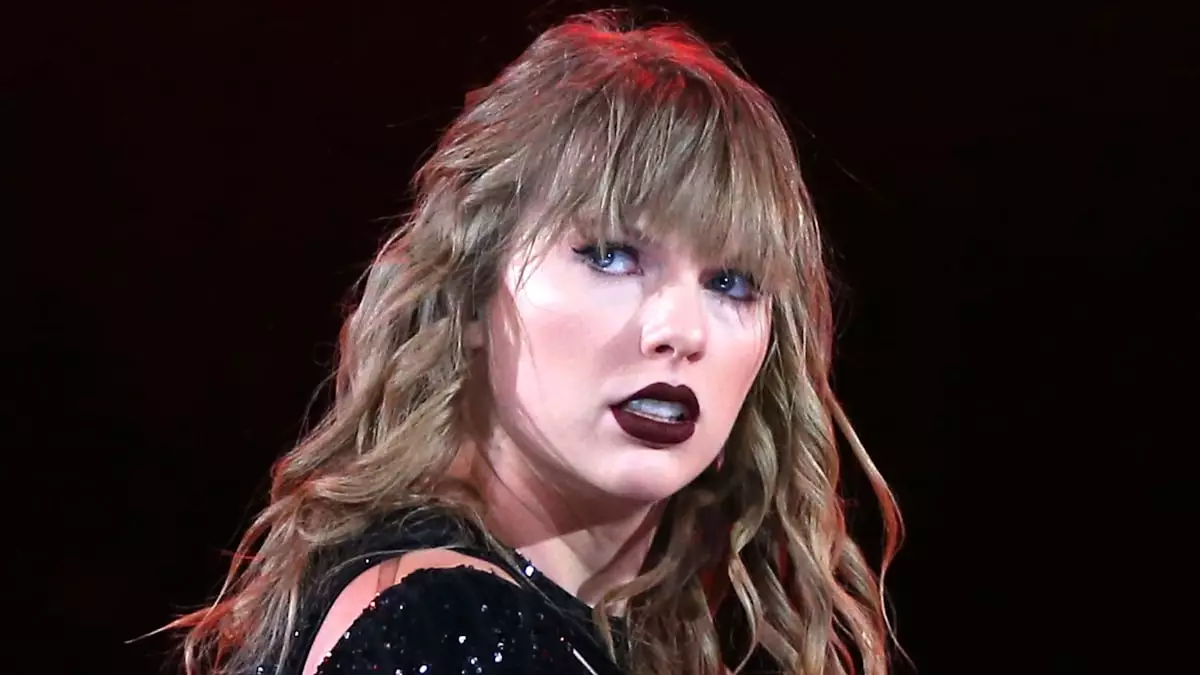In the glitzy world of fame, where adoration from fans often translates into unrelenting scrutiny, the boundary between adulation and obsession can become dangerously blurred. The recent restraining order filed by the celebrated artist Taylor Swift against a man named Brian Jason Wagner serves as a chilling reminder of the darker side of celebrity. The fact that this situation has escalated over the past year casts a spotlight on the vulnerabilities that lie beneath Swift’s public persona—an image that many perceive as fortified by success but is, in reality, only as secure as the walls surrounding her private life.
Wagner, a 45-year-old with a reported history of incarceration, allegedly stalked Swift, showing up at her residence multiple times, attempting to engage with her despite her lack of recognition of him. Such incidents fuel an unsettling narrative, suggesting that some individuals harbor delusions regarding their relationships with public figures. Swift’s poignant declaration—that she has never met or communicated with Wagner—underscores the unfounded claims he has made about their supposed connection, including erroneous assertions about fatherhood. It’s a harrowing wake-up call to the entertainment industry about the extreme lengths to which some fans might go in pursuit of their idols.
The Psychological Toll of Stalking
While the facts of the case unfurl, the psychological implications for Swift cannot be understated. It is one thing to be a public figure perceived as larger than life; it is quite another to be confronted with the intrusive, often dangerous behaviors of individuals who disregard personal boundaries. In her declaration, Swift expressed a palpable fear for her safety and the safety of her family. This sentiment echoes a broader reality that those in positions of fame often face: the constant threat posed by unwelcome attention and harassment.
Moreover, the recent revelations highlight how personal privacy can be compromised in the age of social media and public visibility. Swift’s comments about never having shared her address openly emphasize a truth that countless celebrities grapple with: the fragility of their security and the overwhelming sense of vulnerability when stalkers like Wagner intrude upon their lives. The emotional exhaustion stemming from such experiences can impact mental well-being, necessitating vigilance in protecting one’s personal space.
A Triumph Overshadowed
Interestingly enough, this unsettling event transpired just after a significant achievement in Swift’s career—the resolution of her lengthy battle concerning the ownership of her master recordings. The fact that she managed to reclaim her artistic rights for a staggering $360 million marks a remarkable triumph for any artist, especially amid a landscape that often marginalizes the creative voice. However, it’s alarming how quickly joy can be upended by external threats. The juxtaposition of achieving a long-sought victory in her professional life while simultaneously facing peril in her personal life creates a complex emotional narrative that few can fathom.
The emotional rollercoaster that Swift encapsulates is emblematic of the trials faced by many high-profile artists. They often walk a tightrope between celebrating significant personal and professional milestones and fending off potential dangers that loom due to their celebrity status. It is daunting to consider how one minute can be filled with elation and the next with existential dread, all because of another’s obsession.
The Road Ahead: A Culture of Responsibility
In light of these incidents, the entertainment industry must take an honest look at how it addresses issues of safety and mental health for its artists. The narratives surrounding Strauss highlight not only the plight of individuals but also a systemic failure in recognizing and safeguarding the well-being of artists. Strategies to build an environment of responsibility must be prioritized, and it is crucial to amplify awareness about the importance of mental health resources for those in the spotlight.
Swift’s journey goes beyond mere fame; it is a poignant tale of resilience, and this recent chapter offers a new lens through which we must view the conversation about fame, privacy, and safety. Her experiences serve as a clarion call for change, urging both the industry and fans to reflect on the implications of adoration turned obsession. In a world where the boundary between admiration and obsession can often fade, it remains vital to prioritize the safety and mental well-being of artists, allowing them the space to create without fear.

